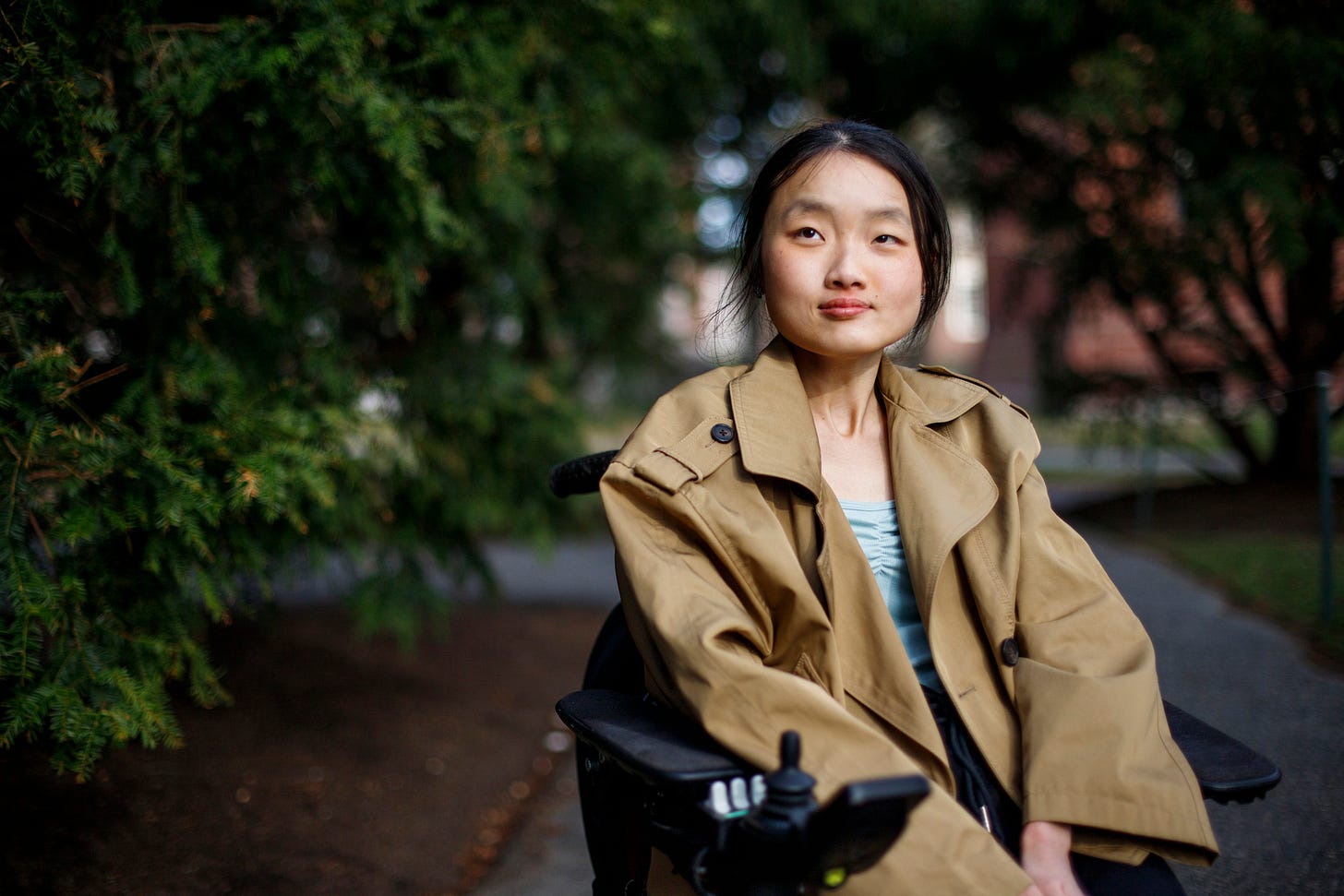Crip News v.187
New works, access markets, calls, and events.
NEWS
New Works
Marsha: The Joy and Defiance of Marsha P. Johnson by Tourmaline is out from Penguin Random House. The biography of the Black trans activist is told through the lens of mad disability justice. “We need to love the madness in our communities,” Tourmaline recently told Oluwatayo Adewole from Dazed, “the mad queens who are so often marginalised within our own communities.”
Disabled anti-Zionist Jewish organizer Dom Kelly has published “There is no disability justice without a Free Palestine” on Mondoweiss.
Detroit Disability Power has released accessible housing resources in collaboration with the City of Detroit Housing Revitalization Department, including a Know Your Rights Brochure, Tips for Accommodation Requests, and Plain Language Guide for Housing Providers.
For The Harvard Gazette, Nikki Rojas profiles Harvard University Disability Justice Club co-founder Melissa Shang and her research on mental health and disability.
Out of Isolation is on view at Venues for Artists in the Local Area (VALA) Eastside (Redmond, WA). The exhibition, supported by Queer and Covid-Cautious Creatives, features work by Pacific Northwest-based queer artists “rooted in Disability Justice who are isolated due to ableism regarding the ongoing pandemic.”
The BBC’s Doctor Who: Unleashed recently looked at how the crew created an accessible set for Doctor Who Season 2, Episode 7 featuring the “Camp of the Dispossessed” in the dystopian “Wish World.”
Access Markets
This spring, several major US retailers have launched new products marketed as “accessible.” Here’s a rundown:
IKEA launched BÄSINGEN, a “series of multifunctional, durable and stylish products to give you support when sitting down, standing up or wanting to reach a little higher.”
Adidas launched basketball uniforms “tailored specifically for wheelchair and seated athletes” in collaboration with Adaptive Sports Northwest. The uniforms were debuted at the National Wheelchair Basketball Association (NWBA) Tournament in April.
Driven by employee organizing, the cosmetics company LUSH is working on “sensory-friendly” stores in a program with KultureCity that uses staff training and sensory bags with noise cancelling headphones, fidget tools, strobe-reducing glasses, and an emotions-cue card.
CALLS
Disabled And Here has issued an open call for trans and gender nonconforming disabled people of color to photograph, interview, and celebrate during Pride. Disabled TQN2SI+ people of color who are at least 18 years old and can be onsite in Portland, OR on Thursday, June 26 between 5pm-10pm PT are invited to apply.
Deaf Spotlight is accepting film submissions for the 8th biennial Seattle Deaf Film Festival. Submit by October 31, 2025.
EVENTS
Access Work: A Practical Guide
Tuesday, June 10, 6 – 8:00pm ET, on Zoom
The makers of Pay Rate for Access Workers Now (PRAWN) Alison Kopit and Madison Zalopany are hosting a virtual conversation that shares resources with access workers about how to describe the work they do, negotiate for standards of pay, and advocate for themselves and their work.Captives: Three Portraits of the Asylum (and One of its Decline)
Tuesday, June 10, 7pm, in-person at e-flux (Brooklyn, NYC)
The films in this program, guest programmed by Seth Barry Watter, present rare views of the asylum from outside perspectives and in a variety of national contexts. Walls of Skin by Martin Spinelli, Arthur Plutzer, and Rita Mitra (1964, 19 minutes); No Man is a Stranger by Erica Anderson (1961, 25 minutes); Captive Feast by Mario Ruspoli (1962, 17 minutes); and Ode to Seekers 2012 by Andrew Norman Wilson (2016, 9 minutes). This 70-minute program will be preceded by a short lecture by Watter on the genre of the asylum film and the place of these films within it.Function-Able: Artifacts in the Era of Design and Disability by David Gissen
Thursday, June 12, 7pm ET, in-person at e-flux (Brooklyn, NYC)
The lecture explores a range of US industrial designers’ and architects’ efforts to both define physiological normality and to enhance the functioning of disabled people. This talk ultimately argues that what is eliminated in this design work—the provocative physicality of incapacities—offers a critical perspective on the limits of design versus more opportunities for design engagements with disabled people. In an effort to outline the latter concept, the talk also introduces the possibilities of a disability-led anti-design movement, drawn from little-known historical examples.







